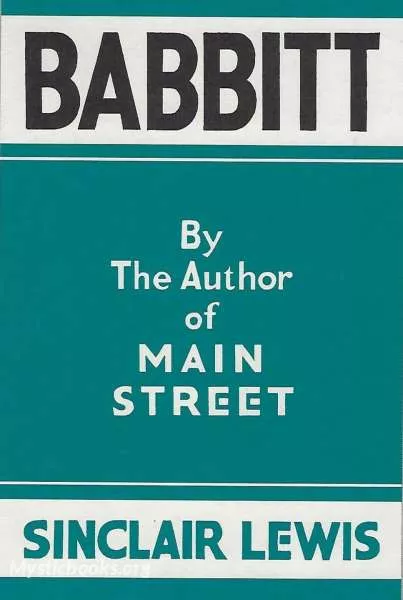
Babbitt
'Babbitt' Summary
Lewis has been both criticized and congratulated for his unorthodox writing style in Babbitt. One reviewer said "There is no plot whatever... Babbitt simply grows two years older as the tale unfolds." Lewis presents a chronological series of scenes in the life of his title character. After introducing George F. Babbitt as a middle-aged man, "nimble in the calling of selling houses for more than people could afford to pay," Lewis presents a meticulously detailed description of Babbitt's morning routine. Each item Babbitt encounters is explained, from the high-tech alarm clock, which Babbitt sees as a marker of social status, to the rough camp blanket, a symbol of the freedom and heroism of the West. As he dresses for the day, Babbitt contemplates each article of his "Solid Citizen" uniform, the most important being his Booster's club button, which he wears with pride. The first seven chapters follow Babbitt's life over the course of a single day. Over breakfast Babbitt dotes on his ten-year-old daughter Tinka, tries to dissuade his 22-year-old daughter Verona from her newfound socialist leanings, and encourages his 17-year-old son Ted to try harder in school. At the office he dictates letters and discusses real estate advertising with his employees.
Babbitt is professionally successful as a realtor. Much of his energy in early chapters is spent on climbing the social ladder through booster functions, real estate sales, and making good with various dignitaries. According to Babbitt, any "decent" man in Zenith belonged to at least two or three "lodges" or booster clubs. They were good for potential business partnerships, getting time away from home and family life, and quite simply because "it was the thing to do." Babbitt admits that these clubs "stimulated him like brandy" and that he often finds work dull and nerve-wracking in comparison. Lewis also paints vivid scenes of Babbitt buying liquor at a speakeasy (despite being a supporter of Prohibition) and hosting dinner parties. At his college class reunion, Babbitt reconnects with a former classmate, Charles McKelvey, whose success in the construction business has made him a millionaire. Seizing the opportunity to hobnob with someone from a wealthier class, Babbitt invites the McKelveys to a dinner party. Although Babbitt hopes the party will help his family rise socially, the McKelveys leave early and do not extend a dinner invitation in return.
Gradually, Babbitt realizes his dissatisfaction with "The American Dream," and attempts to quell these feelings by going camping in Maine with his close friend and old college roommate Paul Riesling. When Babbitt and Paul arrive at the camp they marvel at the beauty and simplicity of nature. Looking out over a lake Babbitt comments: "I'd just like to sit here – the rest of my life – and whittle – and sit. And never hear a typewriter." Paul is similarly entranced, stating: "Oh it's darn good, Georgie. There's something eternal about it." Although the trip has its ups and downs, the two men consider it an overall success, and leave feeling optimistic about the year ahead.
On the day that Babbitt gets elected vice-president of the Booster's club, he finds out that Paul shot his wife Zilla. Babbitt immediately drives to the jail where Paul is being held. Babbitt is very shaken up by the situation, trying to think of ways to help Paul out. When Paul is sentenced to a three-year jail term, "Babbitt returned to his office to realize that he faced a world which, without Paul, was meaningless." Shortly after Paul's arrest, Myra (Babbitt's wife) and Tinka go to visit relatives, leaving Babbitt more or less on his own. Alone with his thoughts, Babbitt begins to ask himself what it was he really wanted in life. Eventually, "he stumbled upon the admission that he wanted the fairy girl – in the flesh." Missing Paul, Babbitt decides to return to Maine. He imagines himself a rugged outdoorsman, and thinks about what it would be like to become a camp guide himself. Ultimately, however, he is disenchanted with the wilderness and leaves "lonelier than he had ever been in his life."
Eventually Babbitt finds the cure for his loneliness in an attractive new client, Tanis Judique. He opens up to her about everything that happened with Paul and Zilla, and Tanis proves to be a sympathetic listener. In time, Babbitt begins to rebel against all of the standards he formerly held: he jumps into liberal politics with famous socialist/'single tax' litigator Seneca Doane; conducts an extramarital affair with Tanis; goes on various vacations; and cavorts around Zenith with would-be Bohemians and flappers. But each effort ends up disillusioning him to the concept of rebellion. On his excursions with Tanis and her group of friends, "the Bunch," he learns that even the Bohemians have rigid standards for their subculture. When Virgil Gunch and others discover Babbitt's activities with Seneca Doane and Tanis Judique, Virgil tries to convince Babbitt to return to conformity and join their newly founded "Good Citizens' League." Babbitt refuses. His former friends then ostracize him, boycotting Babbitt's real estate ventures and shunning him publicly in clubs around town.
Babbitt slowly becomes aware that his forays into nonconformity are not only futile but also destructive of the life and the friends he once loved. Yet he continues with them – even after Myra suspects Babbitt's affair, though she has no proof or specific knowledge. Unrelated to these events, Myra falls seriously ill with acute appendicitis. Babbitt, in a near-epiphany, rushes home and relinquishes all rebellion in order to care for his wife. During her long recovery, they spend a lot of time together, rekindling their intimacy. In short time, his old friends and colleagues welcome Babbitt back into the fold. The consequence of his disgruntled philosophical wanderings being met with practical events of life, he reverts into dispassionate conformity by the end; however, Babbitt never quite loses hold of the sentimentality, empathy, and hope for a meaningful life that he had developed. In the final scene, all has been righted in his life and he is back on a traditional track. He is awakened in the night to find that his son Ted and Eunice, the daughter of his neighbor, have not returned from a party. In the morning his wife informs him that the two have been discovered in the house, having been married that night. While an assemblage of friends and family gather to denounce this development, Babbitt excuses himself and Ted to be alone. He offers his approval of the marriage, stating that though he does not agree, he admires the fact that Ted has chosen to lead his life by his own terms and not that of conformity.
Book Details
Language
EnglishOriginal Language
EnglishPublished In
1922Authors
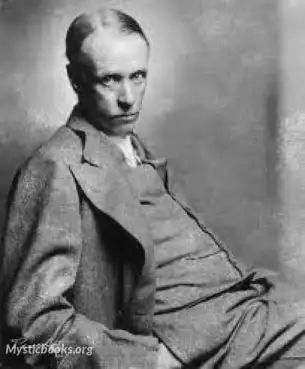
Sinclair Lewis
United States
Harry Sinclair Lewis was an American writer and playwright. In 1930, he became the first writer from the United States (and the first from the Americas) to receive the Nobel Prize in Literature, which...
Books by Sinclair LewisDownload eBooks
Listen/Download Audiobook
- Select Speed
Related books

Tiger of Mysore by G. A. Henty
Set against the backdrop of the Anglo-Mysore Wars, 'Tiger of Mysore' follows young Dick Holland and his mother as they embark on a perilous journey to...
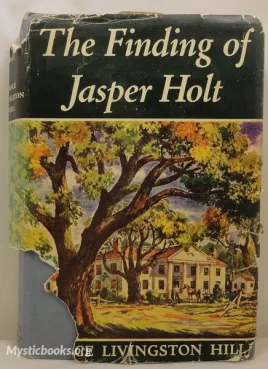
The Finding of Jasper Holt by Grace Livingston Hill
What if a train wreck brought two unlikely people together, and their love story changed the course of their lives? The Finding of Jasper Holt by Gra...

Tamburlaine the Great, Part 1 by Christopher Marlowe
Tamburlaine the Great is a play in two parts by Christopher Marlowe. It is loosely based on the life of the Central Asian emperor, Timur (Tamerlane/Ti...

Return of Peter Grimm by David Belasco
The Return of Peter Grimm is a play exploring the theme of the afterlife and spiritualism through the story of Peter Grimm, a farmer who returns as a...
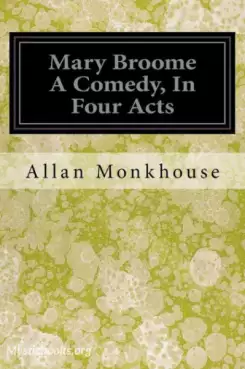
Mary Broome: A Comedy in Four Acts by Allan Monkhouse
In Allan Monkhouse's 1911 satire, when the son of a middle-class household gets their housemaid pregnant, the two families must try to combine their v...
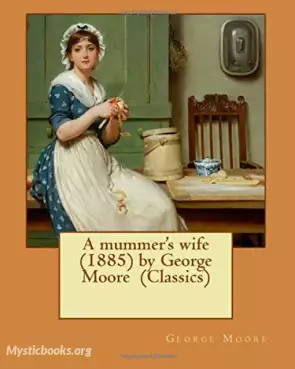
A Mummer's Wife by George Moore
A Mummer's Wife tells the story of Kate Ede, a bored Midlands housewife unhappily married to an asthmatic draper. When a handsome travelling actor com...

Secresy, or, the Ruin on the Rock by Eliza Fenwick
Eliza Fenwick's 'Secresy, or, The Ruin on the Rock' is a captivating novel that explores the complexities of female friendship, societal expectations,...

Wilhelm Meister's Apprenticeship Volume 1 by Johann Wolfgang von Goethe
Wilhelm Meister's Apprenticeship is a complex and multi-layered novel that explores themes of self-discovery, societal pressures, and the search for m...

Man of Means by P. G. Wodehouse
A Man of Means is a collection of six short stories written in collaboration by P. G. Wodehouse and C. H. Bovill. The stories all star Roland Bleke, a...

Testament van mevrouw De Tonnette by Gerard Keller
Het Testament van mevrouw De Tonnette is een lichtvoetige roman uit de 19e eeuw, die draait om een rijke weduwe die haar fortuin wil nalaten aan een a...
Reviews for Babbitt
No reviews posted or approved, yet...